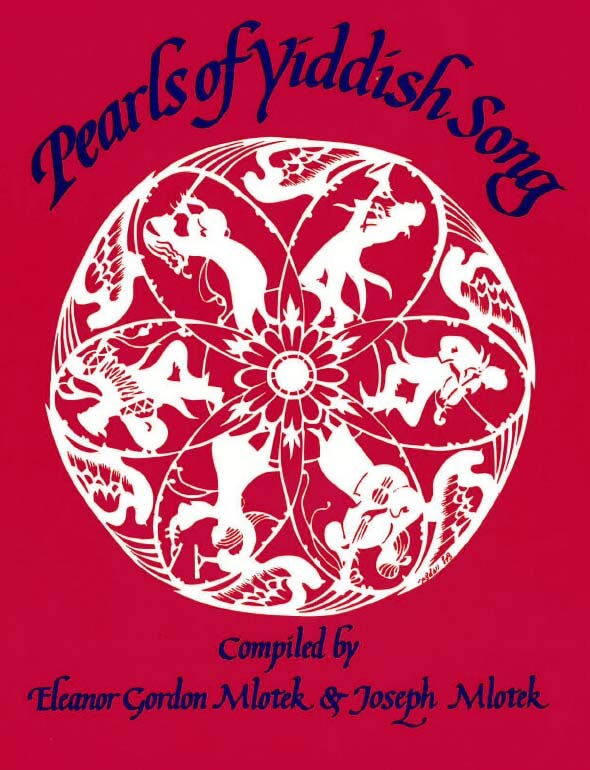One of the most popular Yiddish theatre songs that arose in the United States that expressed longing for hometowns in Eastern Europe. Text by Jacob Jacobs (1892-1972); music by Alexander Olshanetsky (1892-1946), written for Olshanetsky’s play The Song of the Ghetto.
Poet-folklorist S. Kaczerginski relates in Khurbn vilne that during the Holocaust the Nazis forced the Jews of the Vilna Ghetto to sing before each meal. The Jews’ favorite songs were “Vu zaynen mayne zibn gute yor?” (Where are my seven good years?) and “Belz.”

Tell me, old man, tell me quickly because I want to know everything now:
How does the little house look that once sparkled?
Does the little tree I planted still bloom?
— The little house is old, overgrown with grass,
The old roof is crumbling,
The windows are without glass,
The attic is crooked,
The walls bent.
You’d never recognize it.
Belz, my little town, Belz,
My little home where I spent my childhood years.
Belz, my little town, Belz, in the poor little house where I laughed with all the children.
Every shabes I’d run to read by the river.
Belz, my little town, Belz, my little home where I had so many beautiful dreams.
Dertseyl mir, alter,
Dertseyl mir geshvind,
Vayl ikh vil visn
Ales atsind;
Vi zet oys dos shtibl,
Vos hot a mol geglantst,
Tsi blit nokh dos beymele,
Vos ikh bog farflantst?
— Dos shtibl iz alt,
Farvaksn mit mokh un groz,
Der alter dakh tsefalt,
Der fentster on a gloz,
Der ganik iz krum,
Tseboygn di vent,
Du volst dos shoyn mer
Gornit derkent.
Refrain:
Belz — mayn shtetele Belz,
Mayn heymele, vu ikh hob
Mayne kindershe yorn farbrakht.
Zayt ir a mol geven in. . .
Belz, mayn shtetele Belz,
In oremen shtibele
Mit ale kinderlekh dort gelakht.
Yedn shabes fleg ikh loyfn
Dort mit der tkhine glaykh,
Tsu zitsn unter dem grinem beymele,
Leynen bay dem taykh.
Belz, mayn shtetele Belz,
Mayn heymele vu kh’hob gehat
Di sheyne khaloymes a sakh.
דערצײל מיר, אַלטער
דערצײל מיר געשװינד,
װײַל איך װיל װיסן
אַלעס אַצינד;
װי זעט אױס דאָס שטיבל,
װאָס האָט אַ מאָל געגלאַנצט,
צי בליט נאָך דאָס בײמעלע,
װאָס איך האָב פֿאַרפֿלאַנצט!
— דאָס שטיבל איז אַלט,
פֿאַרװאָקסן מיט מאָך און גראָז,
דער אַלטער דאַך צעפֿאַלט,
דער פֿענצטער אָן אַ גלאָז,
דער גאַניק איז קרום,
צעבױגן די װענט,
דו װאָלסט דאָס שױן מער
גאָרניט דערקענט.
רעפֿרײן:
בעלז — מײַן שטעטעלע בעלז,
מײַן הײמעלע, װוּ איך האָב
מײַנע קינדערשע יאָרן פֿאַרבראַכט.
זײַט איר אַ מאָל געװען אין . . .
בעלז, מײַן שטעטעלע בעלז,
אין אָרעמען שטיבעלע
מיט אַלע קינדערלעך דאָרט געלאַכט.
יעדן שבת פֿלעג איך לױפֿן
דאָרט מיט דער תּחינה גלײַך,
צו זיצן אונטער דעם גרינעם בײמעלע,
לײענען בײַ דעם טײַך.
בעלז, מײַן שטעטעלע בעלז,
מײַן הײמעלע װוּ כ’האָב געהאַט
די שײנע חלומות אַ סך.
Song Title: Belz

First published in 1988 as Pearls of Yiddish Song: Favorite Folk, Art and Theatre Songs, this anthology contains 115 songs. Some material had never been published, while others, included in rare song collections or sheet music, were largely inaccessible. The songs presented reflect Jewish life in Eastern Europe and the United States and depict childhood, love, family celebrations, poverty, work and struggle. There are also songs from the Hasidic and Maskilic movements, songs of Zion and of America, as well as songs from the Yiddish theater.
The title of this anthology derives from the weekly two-page feature column “Pearls of Yiddish Poetry,” which the compilers Yosl and Chana Mlotek initiated in 1970 in the Yiddish newspaper Der Forvertz (the Yiddish Daily Forward). Hundreds of readers from around the world — including authors, composers, singers, actors — became co-participants in this collective folk project and recalled melodies, lines, fragments, stanzas and their variants of songs, poems, and plays which they had heard in their youth. At first, readers sent in only written material. Later, they also taped songs on cassettes, many of whose melodies had, until then, never been recorded. They also identified and supplied missing information regarding lyricists, poets, and composers and described the circumstances surrounding the songs’ origins, their dissemination, diffusion and impact.